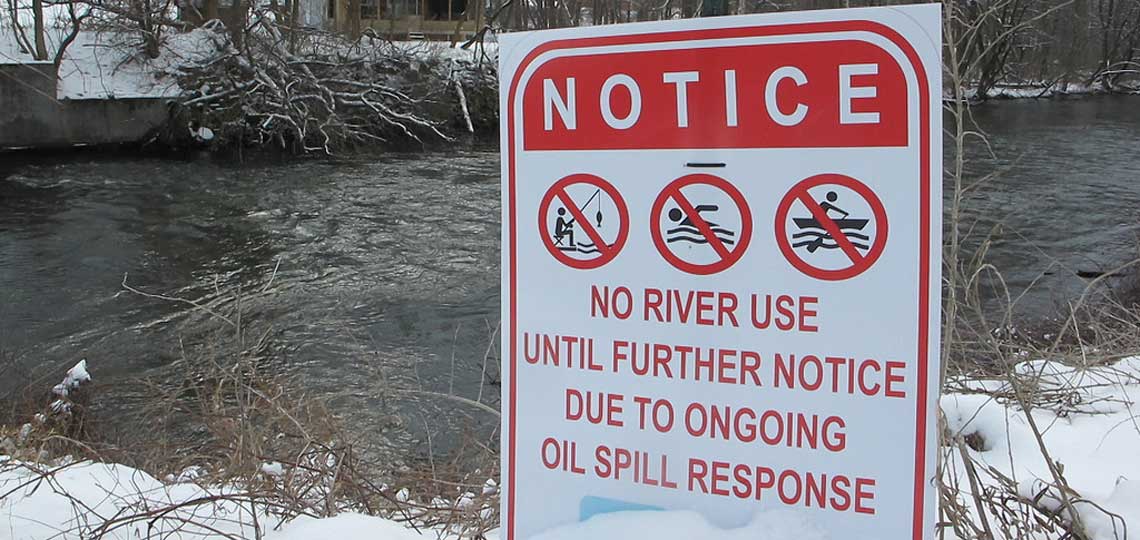Ecojustice is in court to argue that B.C. has an obligation to pass strong and enforceable environmental laws — especially when federal laws leave communities and the environment vulnerable.
Oil spills like the Exxon Valdez spill in 1989, and the Deepwater Horizon and Kalamazoo spills in 2010 have devastating impacts on the environment and local communities.
Part of what makes these disasters so scary is that they can continue to cause environmental damage for decades after the initial spill.
This is particularly true when diluted bitumen spills into the environment, like during the Kalamazoo River spill in Michigan. That’s because often there is no safe way to clean up dilbit.
Given these extreme consequences, wouldn’t you want to know that the laws in place to protect communities, the environment and the climate are as strong and enforceable as possible?
This week, Ecojustice is in court to ensure just that.
The Government of British Columbia wants to update its laws so that it can better protect people and the planet from spills involving toxic substances, including diluted bitumen, and it’s asking the B.C. Court of Appeal whether it has the power to do so.
Watch Ecojustice lawyer Harry Wruck live in court
Thanks to supporters like you, Ecojustice is participating in the hearing. In fact, my colleagues Harry Wruck and Kegan Pepper-Smith are scheduled to go before the court tomorrow and argue that the B.C. government has an obligation to make sure the province has strong and enforceable environmental laws — especially when federal laws leave communities and the environment vulnerable.
In a rare move, the proceedings will be livestreamed all week. That means you can watch Ecojustice lawyer Harry Wruck live in action when he appears before the court — likely on Tuesday afternoon or Wednesday morning. Just click on the button below and it will take you to the broadcast.
When it comes to toxic spills, the stronger legal protections the better
Unfortunately, B.C. has good reason to consider how to minimize the risk of a catastrophic oil spill.
If built, the Trans Mountain expansion would nearly triple the pipeline’s capacity, from transporting 300,000 barrels a day to 890,000 a day. En route from the tar sands to the B.C. coast, this oil would end up crossing hundreds of streams and rivers that feed into the Fraser watershed and estuary, an important habitat for more than 50 populations of wild salmon.
Ultimately, all levels of government share responsibility for passing and enforcing strong laws that protect species and the environment and keep communities safe and healthy.
When federal laws don’t go far enough or have significant gaps, provinces have the right to introduce their own laws to protect people and the environment. The same can be said in reverse. If provincial laws do not go far enough to protect the environment or leave gaps in protection, the federal government has a right and responsibility to provide legal backstops.
The bottom line is that when it comes to protecting against toxic spills with lasting impacts, the stronger the legal protections the better — regardless of whether they come from the federal or provincial governments.
Thank you for supporting Ecojustice’s fight to ensure there are strong, enforceable laws in place to defend nature, combat climate change, and fight for a healthy environment for all.
Photo of aftermath of Kalamazoo oil spill by NRDC pix, via Flickr. Image obtained under Creative Commons.


